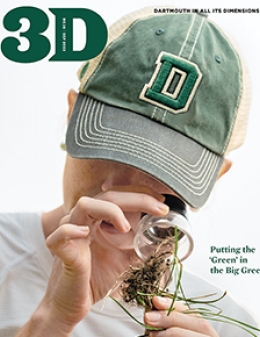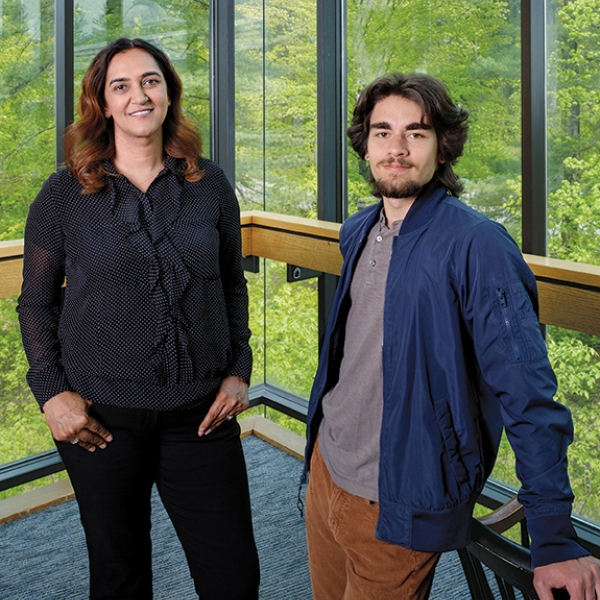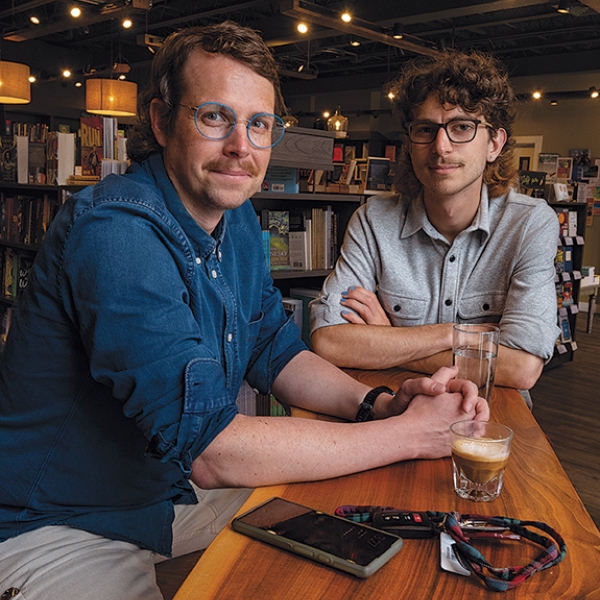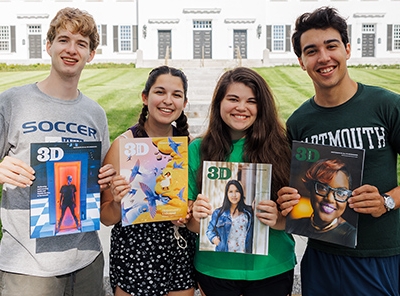An Engineer Joins Forces with First-Year Students to Explore the Roots of Intelligence

Research here is extremely accessible. What's amazing is that securing a paid research opportunity as a first-year is very common at Dartmouth.
Iroda Abdulazizova '26
she/her/hers
Peter Chin
he/him/his
Position
Professor of Engineering
Association
Principal Investigator of the Learning, Intelligence + Signal Processing Lab (LISP)
Iroda Abdulazizova ’26
she/her/hers
Hometown
Tashkent, Uzbekistan
Major
Mathematics
Kimberly Girola-Guzman ’26
she/her/hers
Hometown
Los Angeles, California
Majors
Computer Science and Neuroscience
Professor of Engineering Peter Chin is the principal investigator of the Learning, Intelligence + Signal Processing Lab, or LISP, which seeks to understand the neuroscientific basis of intelligence. Last year, two first-year students conducted paid research in Professor Chin's lab. Iroda Abdulazizova '26 was connected with Professor Chin via the Women in Science Program, or WISP, which matches female-identifying students with opportunities in STEM. Kimberly Girola-Guzman '26 learned about the lab via the First-Year Experience in Engineering Program, which provides first-year undergraduate students with early hands-on experience and mentoring within engineering.
How does the LISP Lab approach the study of intelligence?
Professor Chin
My lab draws on mathematics, computer science, neuroscience, and economics to answer fundamental questions like “Can intelligence be learned?” We try to understand how our brains learn and then use that understanding to build intelligent algorithms. Kim and Iroda have been reading up on state-of-the-art procedures in the field, writing programs in various coding languages, and helping me run machine learning experiments.
Kim and Iroda, this project represents your first paid research experience.
Iroda
Right. I never knew that many of the problems I’m studying even existed before I started working at the LISP Lab. I’ve learned so much about hyperbolic space and differential geometry. And did you know that some data have geometric properties? It’s fascinating to me. I never realized that there’s so much math in daily life.
Kim
Yes, and this research has taught me how to synthesize complex information. Professor Chin has shown me the importance of clear communication and the value of being able to distill our research into accessible and concise presentations.
What is your favorite part of working with Professor Chin?
Iroda
I think it’s the level of support and encouragement I get. I originally worried that I didn’t have enough experience to pursue this research fully, but Professor Chin has been very supportive of my learning.
Kim
My favorite aspect of working with Professor Chin is the opportunity to present my findings during our weekly one-on-one meetings. These sessions have been incredibly valuable in providing me with deep insights into the material. Professor Chin’s explanations help me to grasp complex concepts with clarity.
What would you want prospective students to know about research at Dartmouth?
Iroda
Research here is extremely accessible. What’s amazing is that securing a paid research opportunity as a first-year is very common at Dartmouth.
Professor Chin
In other schools that I’ve been to and taught at, I worked almost exclusively with PhD students. But here at Dartmouth, it’s really normal for faculty members to help undergraduates grow as scientists and engineers. It’s my job to help my students become independent thinkers, researchers, and scientists in their own right. I’m more like a cheerleader in that sense. I help them along. So don’t be afraid to knock on a faculty member’s door, literally or metaphorically. The culture of Dartmouth really encourages that.
100
WISP interns work 6-10 hours per week and are paid for up to 100 hours per term
60%
of students engage in research
1st
Securing a paid research opportunity as a first-year student is very common at Dartmouth



